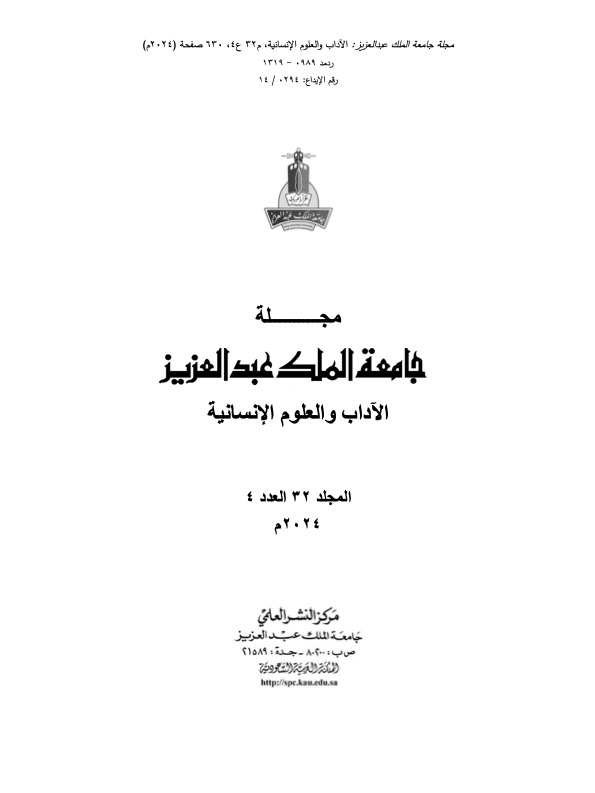مشاهد معياري الموقفية والإعلامية: معاني القرآن للفراء نموذجا
Main Article Content
Abstract
Modern linguistic studies have moved from studying linguistic phenomena at the sentence level to studying them within a larger framework; that is، “text”. Robert de Beaugrand developed seven criteria on which the text is based. The study focuses on two of them related to the surrounding circumstances and conditions of the text: Situationality،which pertains to the external context in which the text occurs، and Informativity،which reveals the speaker’s misunderstanding the recipient’s expectations. Hence the importance of this study، as it opens the door wide for researchers to benefit from the linguistic criteria in revealing the characteristics of Arabic texts, relying on a descriptive-analytical approach and a comparative method in describing, analyzing, and comparing the perspectives of Al-Farraa and the data of the of Text Grammar. The study concluded that Al-Farraa used Situationality data as established by the Text Grammar linguists; he used events and history، clarified beliefs and customs to reach the meanings of the Quranic text. As for the Informativity theory، the Al-Farraa only referred to the possibilities of Arabic and its available alternatives in expression، without considering the impact on the recipient’s expectations of the text.
Keywords:
Text Grammar، Situationality (Context)، Informativity، Quranic text، Al-Farraa

